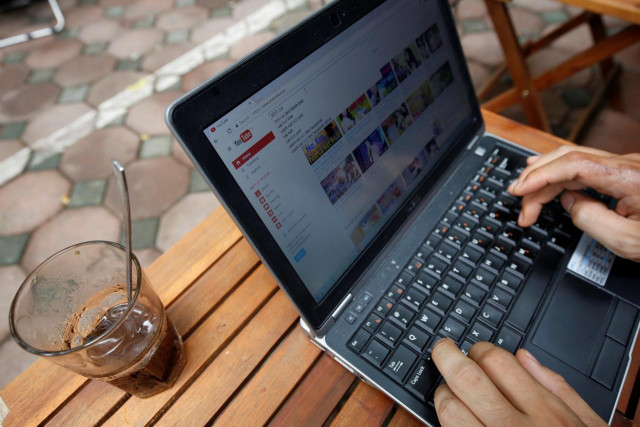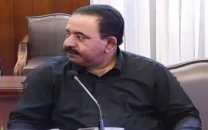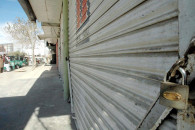‘In the absence of gatekeepers, digital spaces have their own problems’
Panellists discuss feminism in digital spaces at Women of the World Festival

PHOTO: REUTERS
"Digital space - what we call social media - has importance, has vast outreach; it is a democratic medium where multiple people can disseminate their messages. But due to the absence of gatekeepers, it has its own problems," said Sabahat Zakariya, a print journalist and the face behind the YouTube channel ‘Feministani’, on Sunday while moderating a session entitled, 'Feminism in the Digital Space' at the Women of the World Festival at Beach Luxury Hotel.
New communities
Interesting spaces which extend beyond feminism have been created in Pakistan, where Pakistani women from around the world can connect with each other, like Soul Sisters Pakistan (SSP), said Zakariya. "An amazing amount of violence occurs with women. You realise that the idea that everything can be achieved with marriage is undermined by Facebook groups," she added.
"For me, digital feminism has been kind of indicator of the challenge that we face," said Sadaf Khan, co-founder of Media Matters for Democracy,adding that SSP is truly a melting pot with women from every kind of marginalised community.
Nighat Dad, the founder of Digital Rights Foundation, observed that seven or eight years ago, technology was associated primarily with men. Now women are also seen contributing to topics deemed as 'masculine', she said.
Inclusivity
Dad pointed out other divisions that infiltrate digital spaces. A tweet in 120 characters in English language is considered more credible than one in Urdu, she said, adding that we need to speak in Urdu in feminist spaces.
Echoing her, Eman Suleman, a model and activist, added that we need to realise that there is great potential in shaping culture through language. There is no word for 'rape' in Urdu for instance, she said. It is zina-bil-jabar in Urdu which means 'being forced to commit a sin' in legal terms, she elaborated, adding that the survivor has not committed a sin.
Besides, Suleman pointed out, people from different classes do not necessarily have the same kind of access. "Women who are the worst affected by patriarchy have no access to the internet and there is nothing for them," she noted.
Value on-ground
On being asked about the on-ground value of digital spaces, Dad spoke about her experience when she set out to work on violence against marginalised communities. "[While] we received complaints from women and trans communities, we received more calls from males. Seventy percent of the complaints were based on non-consensual intimate images," she said. Digital activism was previously criticized, she said, but now marches like the Aurat March and the Student Solidarity March are being organised both online and offline.
"There is, however, a need to address loopholes in legislation," she observed. The Prevention of Electronic Crimes Act was introduced in 2016 to provide digital security to women but is being misused against women and other marginalised sections of society, said Dad. "In Pakistan, repercussions happen when women use the space, as we saw in the case of #MeToo, both offline and online," said Dad.
Published in The Express Tribune, December 16th, 2019.



















COMMENTS
Comments are moderated and generally will be posted if they are on-topic and not abusive.
For more information, please see our Comments FAQ